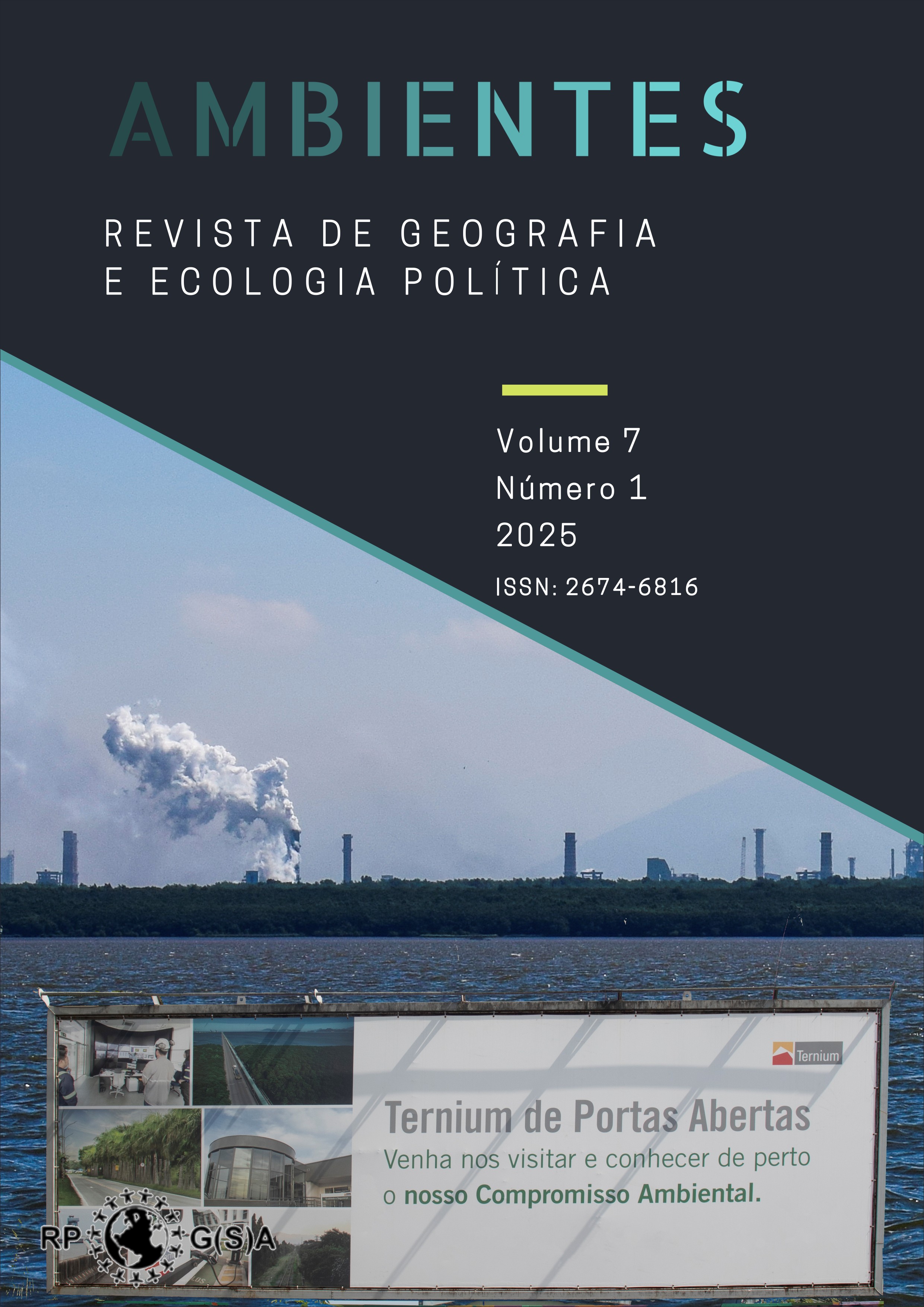The strategies of the real estate-tourism sector and the incorporation of socio-environmental measures on the coast of Brazil
DOI:
https://doi.org/10.48075/amb.v7i1.32869Abstract
Tourism and real estate activities are becoming increasingly prevalent along the Brazilian coast. These activities are generally situated in environments with complex socio-environmental characteristics, where environmental protection is both a legal obligation and a social imperative. Entrepreneurs in this sector have employed strategies to enhance their businesses. It is hypothesized that the development of a new generation of tourist resorts - comprising complexes, resorts, and beach condominiums - intensively utilizes zoning regulations and environmental restrictions to their advantage. This is due both to the increase in monopoly profits and the spatial exclusivity derived from environmental “barriers”, which can strengthen processes of socio-residential homogenization and forms of tourist appropriation. Methodologically, a multi-scalar socio-territorial interpretation was applied, based on documentary research and, primarily, material collected during fieldwork conducted along stretches of the Brazilian coast, specifically in Bahia, Ceará, and Pernambuco. The findings indicate that business groups implement various socio-environmental strategies that impact zoning regulations, usage restrictions, and the economic valuation of developments. It can be asserted that mechanisms for environmental protection are being established in coastal areas based on market principles, particularly those related to the real estate and tourism sectors, as evidenced by models of low-density residential occupation that remain inaccessible to lower-income strata of society.
Keywords: Sustainability; Zoning; Protection; Urbanization.
Downloads
Published
How to Cite
Issue
Section
License

This work is licensed under a Creative Commons Attribution-NonCommercial-ShareAlike 4.0 International License.
Aviso de Direito Autoral Creative Commons
Política para Periódicos de Acesso Livre
Autores que publicam nesta revista concordam com os seguintes termos:
1. Autores mantém os direitos autorais e concedem à revista o direito de primeira publicação, com o trabalho simultaneamente licenciado sob a Licença Creative Commons Attribution que permite o compartilhamento do trabalho com reconhecimento da autoria e publicação inicial nesta revista.2. Autores têm autorização para assumir contratos adicionais separadamente, para distribuição não-exclusiva da versão do trabalho publicada nesta revista (ex.: publicar em repositório institucional ou como capítulo de livro), com reconhecimento de autoria e publicação inicial nesta revista.
3. Autores têm permissão e são estimulados a publicar e distribuir seu trabalho online (ex.: em repositórios institucionais ou na sua página pessoal) a qualquer ponto antes ou durante o processo editorial, já que isso pode gerar alterações produtivas, bem como aumentar o impacto e a citação do trabalho publicado (Veja O Efeito do Acesso Livre).
Licença Creative Commons
Esta obra está licenciada com uma Licença Creative Commons Atribuição-NãoComercial-CompartilhaIgual 4.0 Internacional, o que permite compartilhar, copiar, distribuir, exibir, reproduzir, a totalidade ou partes desde que não tenha objetivo comercial e sejam citados os autores e a fonte.


